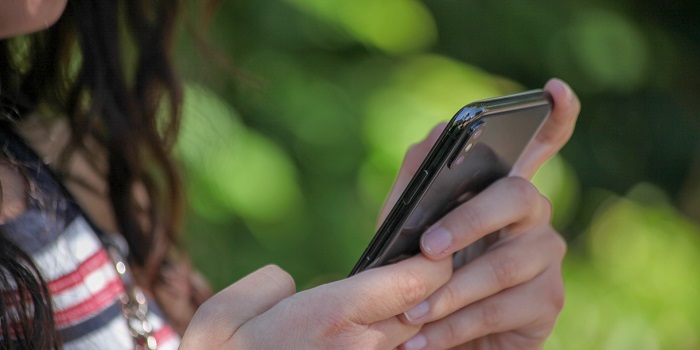Social media and your child
Children have more access to the internet and online social networks than ever before. Over half of children aged 8 to 11 in the UK have said they use social media platforms. The most popular ones include TikTok, WhatsApp and Snapchat. By the age of 15, most children use social media to interact with others, and almost half post their own video content online.
Here, we’ll give you some tips on how to support your child in building a healthy relationship with social media from the very beginning.

How social media can affect your child
Social media is a way of life now for many people. Used in the right way, it can be a fun and creative way for your child to bond with their friends and boost their learning. But there are important downsides to be aware of.
Children may feel pressures to be popular online, or to conform to the ‘ideal’ body image that’s being presented online. They may also be at risk of cyber bullying, seeing harmful or inappropriate content, or oversharing personal information.
Many children claim that social media boosts their feelings of happiness. But some research suggests that frequent social media use could negatively impact your child’s mental health.
The good news is you can help your child to create a healthy relationship with social media from the start. You may find it overwhelming to think about your child using social media.
But having open conversations from a young age can help them to form good habits. It also means your child will know they can come to you if they need advice.
Tips for managing social media with your child
- The world of social media can change very quickly. Ask your child which platforms they use (or want to use) and explore these with them. This can be the perfect opportunity to talk with them and build up understanding and trust between you.
- Make sure you know the age restrictions for social media platforms, as this can vary. If you think something isn’t appropriate for their age, talk through the reasons why.
- Have some ground rules from the beginning – whether that’s no phones at mealtimes, phones off at bedtime, or time limits on devices. Make sure you lead by example, and share your own experiences that have helped you to build a healthy relationship with social media.
- Teach your child how to assess risks and make good decisions for themselves. Parental controls can be useful in stopping younger children from accessing certain apps or websites. But these aren’t always foolproof – keep a check on them.
- Talk through the risks of sharing content on social media with your child (see below). Check privacy and location settings and guide your children in how to do that on everything they use.
- Teach your child to respect other people’s privacy too, and to think about the effect that their posts may have on other people.
- Reassure your child that they can always come to you with a problem – no matter how big or small. It’s always much better to talk about it rather than keeping it to themselves.
- Speak to your child about positive body image. Encourage them not to compare themselves to others online. Instagram has the option to turn off likes and comments which may ease the social pressure.
- It may be useful to look at the safety tools and parent’s guides for specific social media apps. You can find these online, and they can guide you on how to keep your child safe.
How to teach your child to stay safe online
Your child should know about the risks of social media, so they can enjoy using it in a safe and healthy way. Here are some key pieces of advice to share with your child, to help protect them from possible dangers online.
- Anything you post has the potential to be shared far more widely than you intended. And once something has been shared online, it’s difficult – if not impossible – to delete it. Think before you post!
- People’s online presence isn’t always a true reflection of their lives offline. What might seem perfect rarely is.
- Beware of connecting with people on forums or group chats that you don’t know in ‘real life’. They may not be who they claim to be. Avoid sharing personal details online, especially with anyone you don’t know.
- Also be aware of ‘trolls’ – people who intentionally set out to upset people. Don’t engage with anyone posting offensive content, and if possible, report it on the site or app you’re using.
- If someone is sending you nasty messages or posting upsetting things about you, it’s important to speak up and tell a trusted adult. You can also block people, or limit what others can see using privacy settings.
It’s important for your child to have a positive relationship with social media. Make sure to set boundaries and have open discussions about social media from an early age, to keep your child safe online.
Here at Bupa we understand how important your family is. So with our family health insurance you can rest assured knowing that eligible treatment and support is available to you and your loved ones when you need it.
-
Sources Sources
- Children and Parents: Media Use and Attitudes. Ofcom. Ofcom.org.uk, published March 2023
- Social media: A guide for parents and carers. YoungMinds. Youngminds.org.uk, accessed January 2024
- Impact of social media and screen-use on young people’s health. House of Commons Science and Technology Committee. Publications.parliament.uk, published January 2019
- Social media. NSPCC. Nspcc.org.uk, accessed January 2024
- Social media hub: Advice about key social media platforms and apps. UK Safer Internet Centre. Saferinternet.org.uk, accessed January 2024
About our health information
At Bupa we produce a wealth of free health information for you and your family. This is because we believe that trustworthy information is essential in helping you make better decisions about your health and wellbeing.
Our information has been awarded the PIF TICK for trustworthy health information. It also follows the principles of the The Information Standard.

More general health advice articles
Did you find our advice helpful?
We’d love to hear what you think. Our short survey takes just a few minutes to complete and helps us to keep improving our healthy lifestyle articles.
Legal disclaimer
This information was published by Bupa's Health Content Team and is based on reputable sources of medical evidence. It has been reviewed by appropriate medical or clinical professionals and deemed accurate on the date of review. Photos are only for illustrative purposes and do not reflect every presentation of a condition.
Any information about a treatment or procedure is generic, and does not necessarily describe that treatment or procedure as delivered by Bupa or its associated providers.
The information contained on this page and in any third party websites referred to on this page is not intended nor implied to be a substitute for professional medical advice nor is it intended to be for medical diagnosis or treatment. Third party websites are not owned or controlled by Bupa and any individual may be able to access and post messages on them. Bupa is not responsible for the content or availability of these third party websites. We do not accept advertising on this page.







